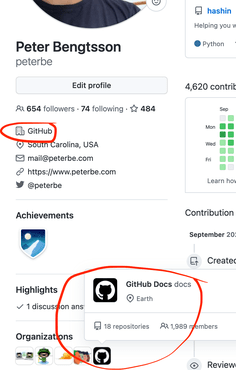Being a recruiter is hard work. A lot of pressure and having to deal with people's egos. Although I have no plans to leave Mozilla any time soon, it's still some sort of value in seeing that my skills are sought after in the industry. That's why I haven't yet completely cancelled my LinkedIn membership.
When I get automated emails from bots that just scrape LinkedIn I don't bother. Sometimes I get emails from recruiters who have actually studied my profile (my blog, my projects, my github, etc) and then I do take the time to reply and say "Hi Name! Thank you for reaching out. It looks really exciting but it's not for me at the moment. Keep up the good work!"
Then there's this new trend where people appear to try to automate what the bots do by doing it manually but without actually reading anything. I understand that recruiters are under a lot of pressure to deliver and try to reach out to as many potential candidates as possible but my advice is: if you're going to do, do it properly. You'll reach fewer candidates but it'll mean so much more.
I got this email the other day about a job offer at LinkedIn:

- I have a Swedish background. Not "Sweetish". And what difference does that make?
- I haven't worked on "FriedZopeBase" (which is on my github) for several years
- I haven't worked on "IssueTrackerProduct" for several years
- Let's not "review [my] current employment". That's for me to think about.
So what can we learn from this? Well, for starters if you're going pretend to have taken time, do it properly! If you don't have time to do in-depth research on a candidate, then don't pretend that you have.
I got another recruiter emailing me personally yesterday and it was short and sweet. No mention of free lunch or other superficial trappings. The only personal thing about it was that it had my first name. I actually bothered to reply to them and thank them for reaching out.

